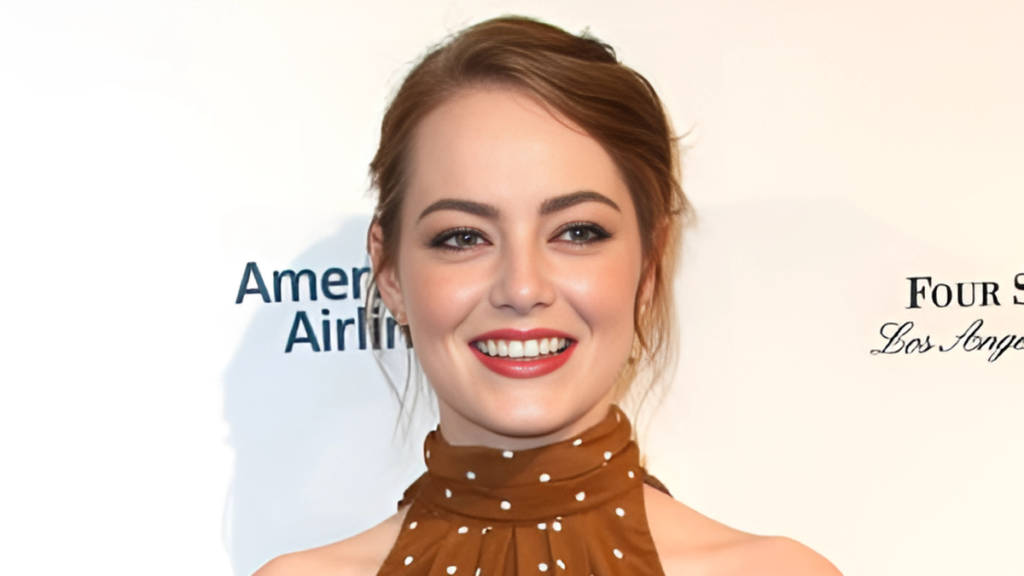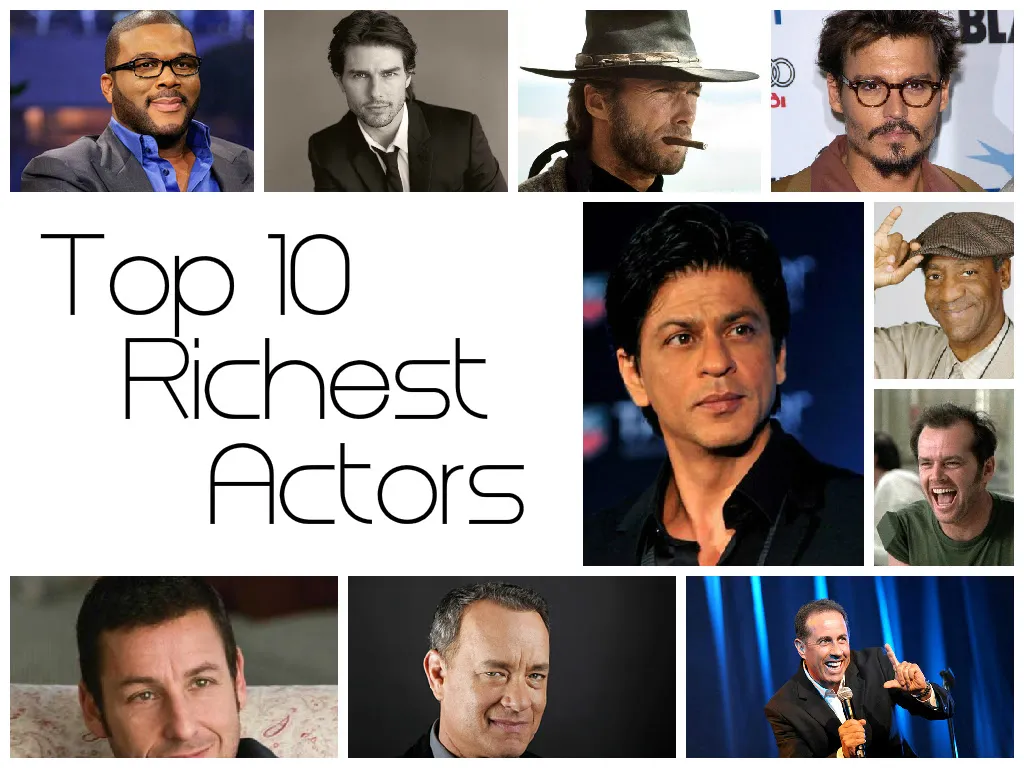
The updated 2025 list of the world’s top 10 richest actors ranks them by net worth, business ventures, and overall influence. These stars have built their wealth not only through acting but also by establishing themselves as powerful and respected figures in entertainment and beyond.
1. Arnold Schwarzenegger: Net Worth $1.49 Billion ·
2. Dwayne Johnson: Net Worth $1.19 Billion ·
3. Tom Cruise: Net Worth $891 Million
4. Shah Rukh Khan: Net Worth $876.5 Million
5. George Clooney: Net Worth $742.8 Million
6. Robert De Niro: Net Worth $735.35 Million
7. Brad Pitt: Net Worth $594.23 Million
8. Jack Nicholson: Net Worth $590 Million
9. Tom Hank: Net Worth $571.94 Million
10. Jackie Chan: Net Worth $557.09 Million
Snapshot Table: 2025’s Richest Actors
| Rank | Actor | Net Worth (2025) | Nationality | Age (2025) | Notable Work | Key Strength |
| 1 | Arnold Schwarzenegger | $1.49 Billion | Austrian-American | 78 | Terminator, True Lies, Predator | Enduring global brand + real estate |
| 2 | Dwayne Johnson | $1.19 Billion | American | 53 | Jumanji, Fast & Furious, Moana | Franchise builder + consumer brands |
| 3 | Tom Cruise | $891 Million | American | 63 | Mission: Impossible, Top Gun, Jerry Maguire | Producer power + back-end deals |
| 4 | Shah Rukh Khan | $876.5 Million | Indian | 59 | DDLJ, Pathaan, Jawan | Pan-global appeal + studio ownership |
| 5 | George Clooney | $742.8 Million | American | 64 | Ocean’s Eleven, Gravity, Up in the Air | Blockbusters + business exits |
| 6 | Robert De Niro | $735.35 Million | American | 82 | Raging Bull, The Godfather Part II, The Irishman | Prestige + hospitality empire |
| 7 | Brad Pitt | $594.23 Million | American | 61 | Fight Club, Once Upon a Time in Hollywood, Seven | A-list roles + producer wins |
| 8 | Jack Nicholson | $590 Million | American | 88 | The Shining, One Flew Over the Cuckoo’s Nest, Batman | Cultural icon + smart back-ends |
| 9 | Tom Hanks | $571.94 Million | American | 69 | Forrest Gump, Saving Private Ryan, Toy Story | Universally loved + evergreen IP |
| 10 | Jackie Chan | $557.09 Million | Chinese (Hong Kong) | 71 | Rush Hour, Police Story, Drunken Master | Asia–Hollywood bridge + stunts |
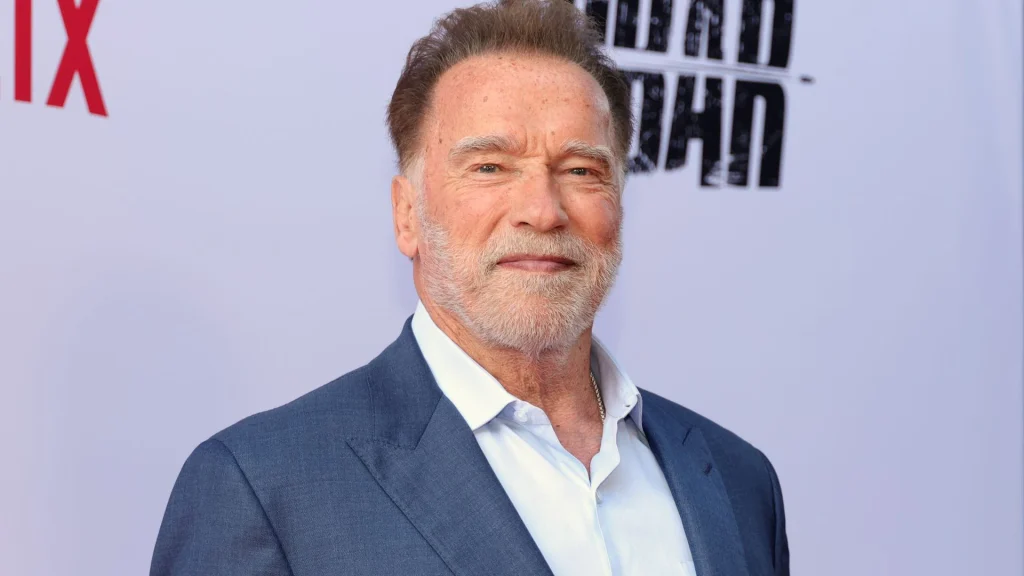
Rank 1 — Arnold Schwarzenegger ($1.49 Billion)
Arnold Schwarzenegger’s fortune is the classic Hollywood-plus story: leverage a once-in-a-generation personal brand into box-office supremacy, then compound it with real estate and businesses that outlast the blockbuster cycle. After conquering bodybuilding, he became a worldwide name with The Terminator franchise and action staples like Predator, Total Recall, and True Lies. Those hits built decades of global syndication, residuals, and licensing—still paying dividends across TV, streaming, and merchandise. Crucially, Arnold didn’t rely on acting alone. From the late 1970s onward he bought California real estate, scaled commercial holdings, and turned savvy property bets into a core wealth engine.
His producer credits and ownership stakes via Oak Productions, plus the Arnold Sports Festival (a premier fitness expo brand), further diversified income. Then there’s the power of a cross-over public career: serving as California’s governor amplified international speaking, books, and brand equity. In the modern attention economy, that “multi-platform relevance” keeps legacy IP visible to new generations, lifting catalog value and appearance fees.
What sets Arnold apart is durability. He remains recognizable across continents, age groups, and platforms—valuable when negotiating new docu-series, ads, and partnerships. His message of discipline and reinvention also sells: fitness communities, entrepreneurship forums, and motivational circuits all convert into long-tail revenue. Combined with high-quality property assets and a calendar that still includes film/TV cameos and global events, the result is a portfolio that compounds even without yearly blockbusters. For 2025, that’s the blueprint: own hard assets, own your brand, and participate in upside. Schwarzenegger does all three—and that’s why he tops this year’s list.
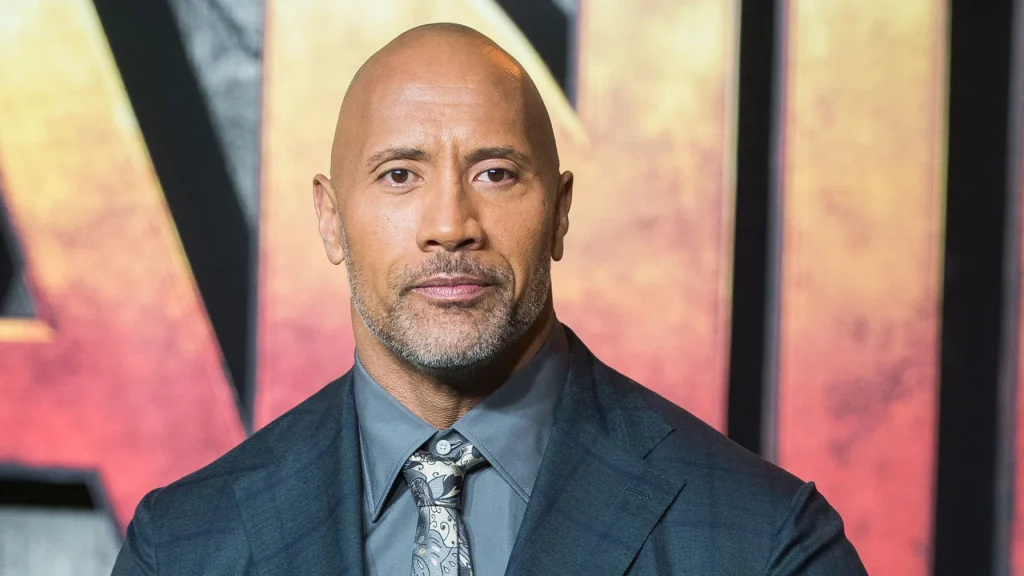
Rank 2 — Dwayne Johnson ($1.19 Billion)
Dwayne “The Rock” Johnson is the modern template for a franchise-grade entertainer who also runs a real consumer-brand playbook. On screen, he’s a reliable box-office draw in family adventure (Jumanji), action (Fast & Furious), and animation (Moana). Off screen, he co-founded Seven Bucks Productions, turning himself from star-for-hire into a producer with leverage on IP, distribution, and marketing narrative. That shift matters: producers participate in multiple revenue streams—back-end points, spin-offs, and cross-platform content—extending the life (and value) of every hit.
Johnson’s bigger wealth unlocks sit in consumer products. Teremana Tequila became a runaway success, proving his brand travels from cinemas to store shelves. Energy drink ZOA, fitness gear with Project Rock, and high-visibility partnerships round out a portfolio where audience affinity translates into recurring sales. Social reach is his superpower: when The Rock posts, products move, trailers trend, and negotiations tilt in his favor. Add lucrative global endorsement deals and live-event charisma, and you have a monetization engine that works year-round—not just when a film opens.
Strategically, Johnson’s team excels at “family-friendly plus aspirational” positioning. It maximizes international approvals, rating flexibility, and merchandising opportunities. The result is compounding: a film role promotes a brand; that brand purchases media featuring Johnson; the halo effect lifts both. In 2025, few celebrities combine producer leverage, mass-market consumer goods, and omnichannel marketing at this scale. That is why The Rock stands firmly in billion-dollar territory.
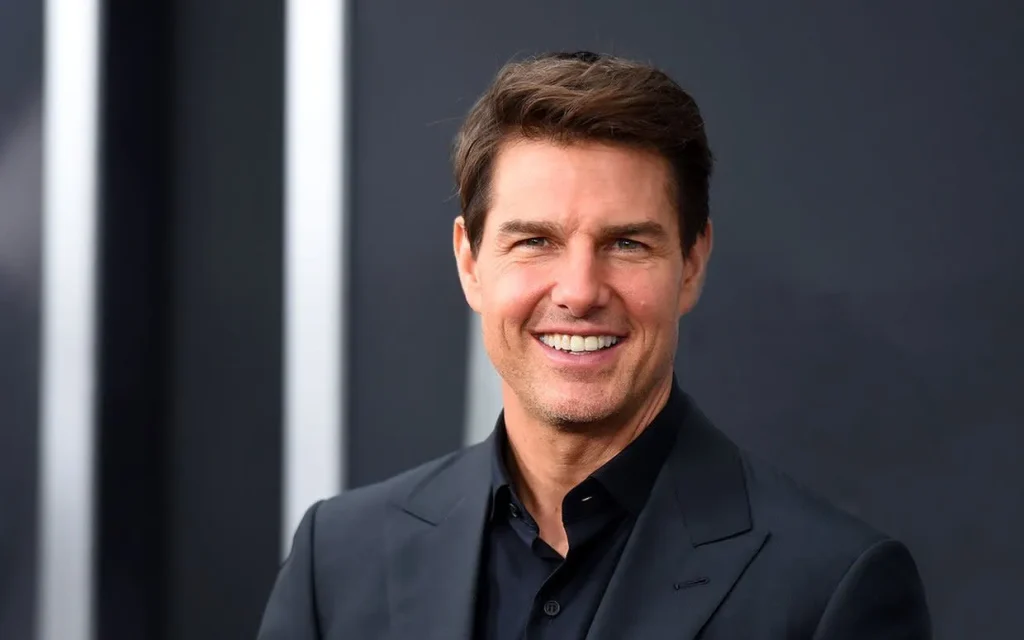
Rank 3 — Tom Cruise ($891 Million)
Tom Cruise is Hollywood’s ultimate back-end dealmaker and a case study in controlling the variables that matter: stunts, spectacle, and release windows. The Mission: Impossible series exemplifies it—he’s not just the face of the franchise, he’s its architect, weighing in on set-pieces, technology (IMAX, premium formats), and schedules to maximize box-office momentum. Top Gun: Maverick reconfirmed his mastery of theatrical event-making, generating outsized performance in domestic and overseas markets and boosting Cruise’s participation profits.
As a producer, Cruise understands that ownership and profit-sharing beat giant up-front fees over time. His library of evergreen hits—Jerry Maguire, A Few Good Men, Rain Man, Minority Report—feeds continuous revenue through TV, streaming, airlines, and bundles, while also preserving his top-tier brand for global advertising. Unlike many stars, Cruise invests heavily in the “wow factor” of practical stunts, creating talkable moments that translate into free press cycles and social virality. That attention compounds box office and strengthens negotiating power with studios and exhibitors.
Financially, Cruise’s strength is concentration: fewer, bigger bets with high quality control. That discipline, combined with producer points and legacy IP, explains why his net worth keeps climbing even after decades at the top. In a streaming era where many titles are disposable, Tom Cruise still delivers cinematic experiences that audiences go out to see—an increasingly scarce and extremely valuable capability.
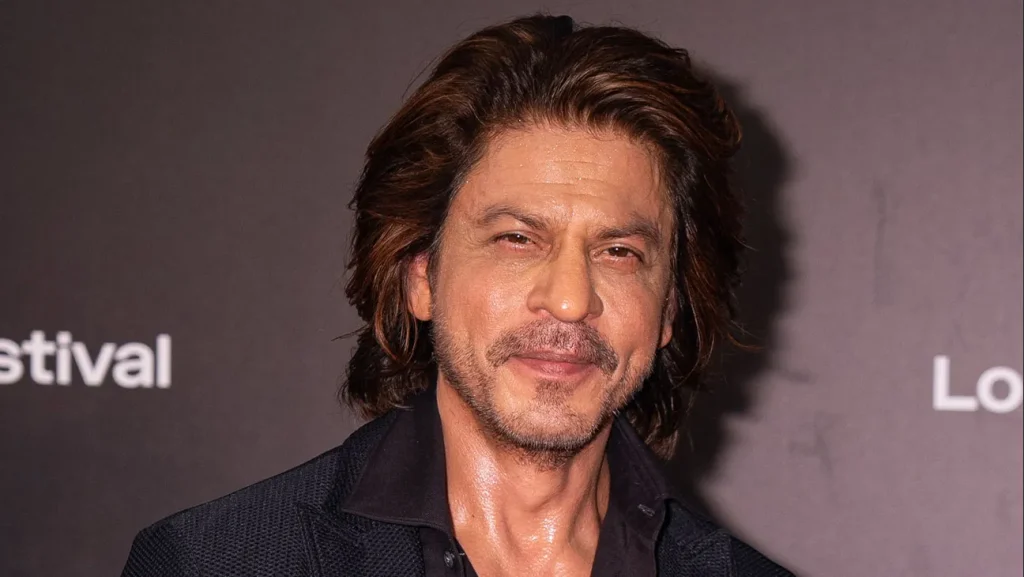
Rank 4 — Shah Rukh Khan ($876.5 Million)
Shah Rukh Khan (SRK) is Bollywood’s global gateway: a megastar whose appeal spans India, South Asia, the Middle East, Europe, and diaspora communities worldwide. His longevity comes from smart role selection (romance to action), impeccable marketing instincts, and a 360° business approach. Hits like Dilwale Dulhania Le Jayenge defined an era, while recent juggernauts such as Pathaan and Jawan re-established SRK as a bankable action lead in the streaming age. Crucially, he co-owns Red Chillies Entertainment, a top production and VFX studio—meaning SRK participates not just as talent, but as a content owner.
Add to that the Kolkata Knight Riders (IPL) co-ownership, which itself has become a sports-media asset with sponsorship, merchandising, and international tie-ins. Endorsements remain a massive pillar: SRK is ubiquitous across categories in India and beyond, leveraging trust and aspirational storytelling. Real estate holdings (including landmark properties) and international appearance revenues extend the portfolio’s stability.
What makes SRK’s wealth engine unique is cross-border resonance: he commands passionate fan bases across multiple language markets, enabling premium pricing for endorsements, distribution, and live events. Red Chillies’ post-production and VFX capabilities also earn from third-party projects, giving SRK exposure to industry upside even when he isn’t on screen. The result is a hybrid model—star power plus studio ownership plus sports equity—that few actors anywhere can replicate. In 2025, SRK stands as a case study in how to turn charisma into an integrated media empire.
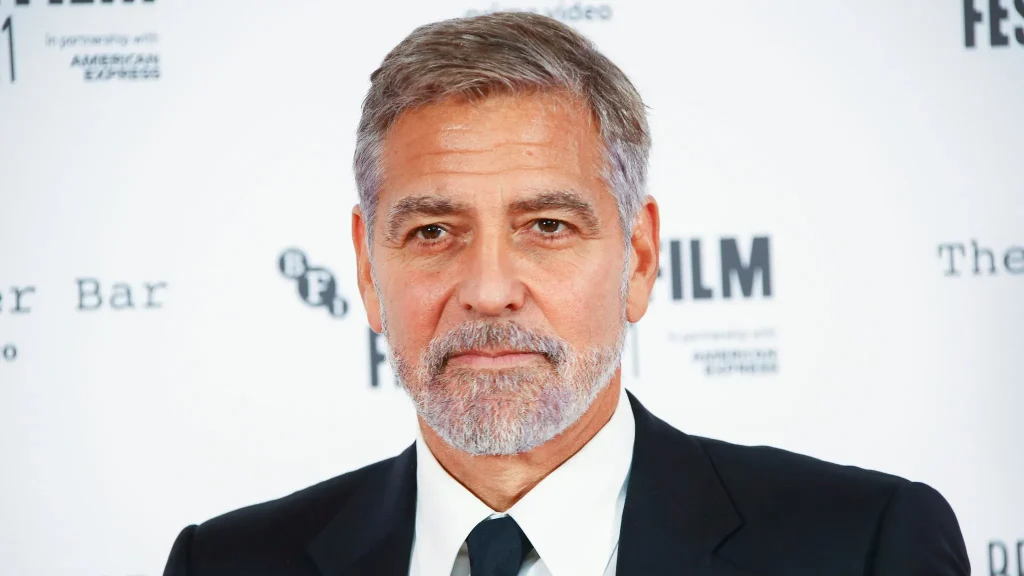
Rank 5 — George Clooney ($742.8 Million)
George Clooney blends prestige storytelling with entrepreneurial timing. The Ocean’s series and critically acclaimed films like Up in the Air and Gravity built a premium brand that advertisers, luxury partners, and tech platforms trust. But the step-change in wealth came from business building: co-founding Casamigos Tequila and later participating in a high-profile exit demonstrated that Clooney’s taste and network translate outside Hollywood. That liquidity event amplified investment options—film financing, production expansions via Smokehouse Pictures, and stakes in ventures aligned with his brand.
Clooney’s on-camera choices preserve pricing power. He can switch between actor, director, and producer, earning multiple revenue streams per project and sustaining long-term catalog value. Global endorsements (think coffee and travel/lifestyle sectors) are a natural fit with his refined, worldly persona, which keeps his image evergreen for premium audiences. Real estate holdings in Europe and the U.S., plus philanthropic visibility, further entrench his high-end positioning.
For 2025, the takeaway is diversification with taste. Clooney remains selective, which protects his brand from overexposure and commands better economics when he does step into the spotlight. With a major business exit on the résumé and an ongoing pipeline of quality projects, he’s positioned as both artist and entrepreneur—exactly the combination that maintains a place in the top-wealth ranks.
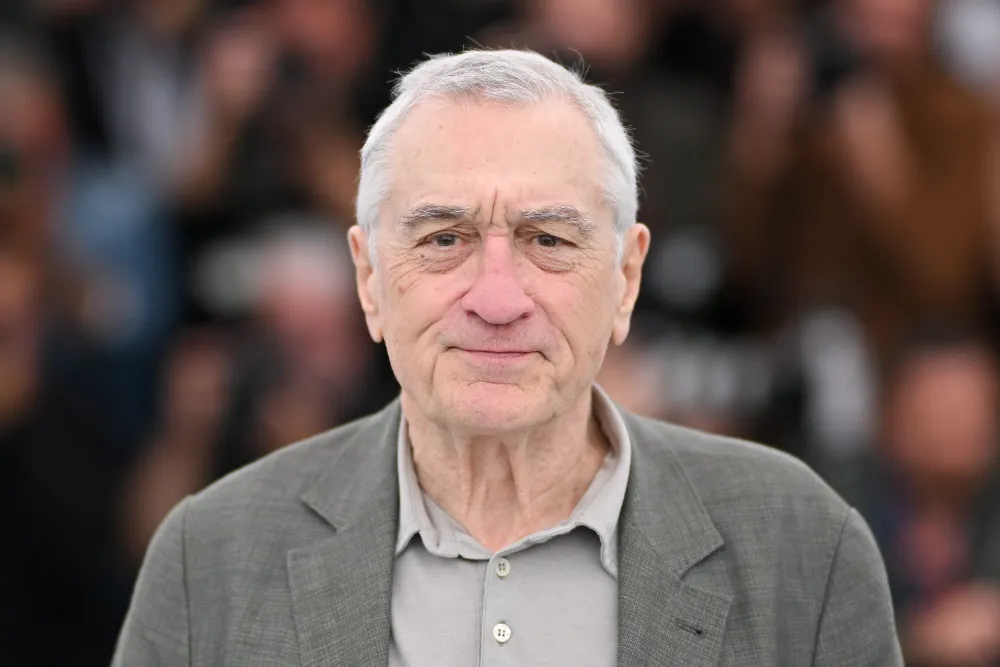
Rank 6 — Robert De Niro ($735.35 Million)
Robert De Niro’s wealth story is a masterclass in compounding prestige and hospitality. On the creative side, the two-time Oscar winner built one of cinema’s most valuable catalogs: The Godfather Part II, Taxi Driver, Raging Bull, Goodfellas, and more recent titles like The Irishman and Killers of the Flower Moon. Those films generate long-tail earnings via licensing, remasters, and platform rotations. But De Niro also helped pioneer the entertainer-to-entrepreneur shift by co-founding Nobu. What began as a fine-dining collaboration grew into a global hospitality brand with restaurants and hotels—recurring, scalable, and culturally iconic.
He also co-founded Tribeca Enterprises, including the Tribeca Festival, which monetizes ticketing, sponsorships, and content deals while reinforcing De Niro’s standing as a cultural steward. Real estate associated with hospitality ventures and personal investments add ballast. The net effect: a portfolio insulated from box-office volatility. Even in slower acting periods, Nobu-driven cash flows and brand value persist.
De Niro’s name carries credibility across generations. For advertisers and platforms, aligning with him signals quality, lending negotiating leverage to both creative and business partnerships. In 2025, De Niro is proof that a great body of work can seed enterprises that outgrow the original fame—and keep building wealth well into later life.
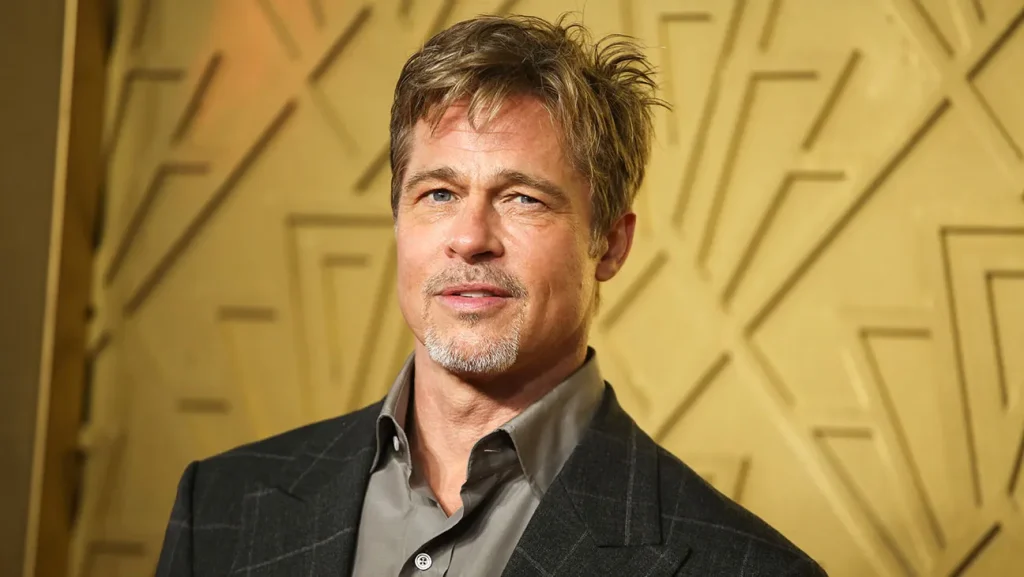
Rank 7 — Brad Pitt ($594.23 Million)
Brad Pitt evolved from heartthrob to Hollywood polymath. As an actor, he stacks global earners (Seven, Mr. & Mrs. Smith, World War Z) with prestige triumphs (The Curious Case of Benjamin Button, Moneyball, Once Upon a Time in Hollywood). As a producer via Plan B Entertainment, he’s behind award-winners and conversation-drivers—projects that enrich reputation and open doors to premium financing and distribution. Producer points, library value, and development pipelines create recurring economics beyond acting fees.
Pitt’s brand is international chic: luxury endorsements, architecture and design collaborations, and a carefully curated public profile that stays aspirational without overexposure. Smart real estate moves and niche investments further diversify his holdings. Importantly, he knows when to be in front of the camera and when to back a project from behind the scenes; that flexibility means multiple films can contribute to earnings simultaneously.
In a streaming-first world, Plan B’s track record with critics and awards keeps demand high among platforms and studios hungry for prestige content. That supply-demand imbalance benefits producers with proven taste. For 2025, Pitt’s net worth is the sum of star power, production ownership, and luxury-aligned partnerships—a durable combination with upside every awards season.
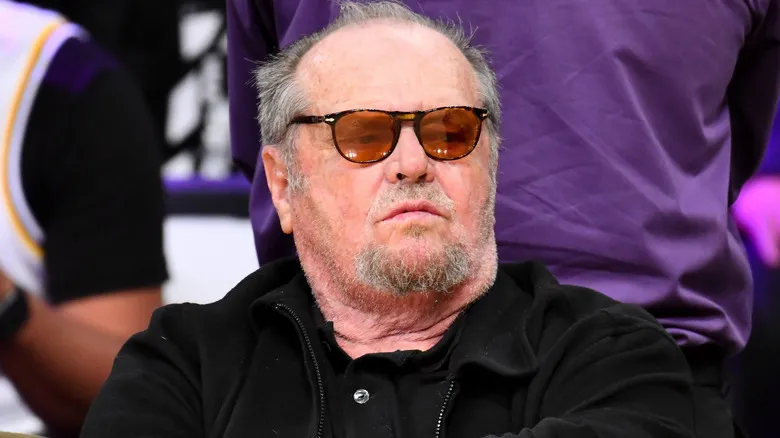
Rank 8 — Jack Nicholson ($590 Million)
Jack Nicholson is cinema royalty, and his portfolio behaves like it. The roles—One Flew Over the Cuckoo’s Nest, The Shining, Chinatown, Batman, As Good as It Gets—aren’t just classics; they’re evergreen assets that live on premium channels, film-school syllabi, and collector editions. Those cycles preserve royalty streams decades after release. Nicholson also earned famously strong back-end arrangements at a time when such deals could be extraordinarily lucrative, particularly on franchise blockbusters.
Beyond screen work, Nicholson cultivated a reputation as a discerning collector and investor. Real estate in prime Los Angeles locations and a valuable art collection add non-correlated wealth. His cultural cachet—Lakers courtside icon, the quintessential Hollywood maverick—keeps demand alive for retrospectives, brand homages, and curated partnerships. Even with limited on-screen activity in recent years, the Nicholson name remains monetizable through catalog, licensing, and special-event programming.
In 2025, Nicholson exemplifies the power of great contracts and timeless IP. While newer stars chase social metrics, his wealth rests on assets audiences revisit again and again. When your filmography is the curriculum, your portfolio keeps getting paid—quietly, consistently, and at scale.
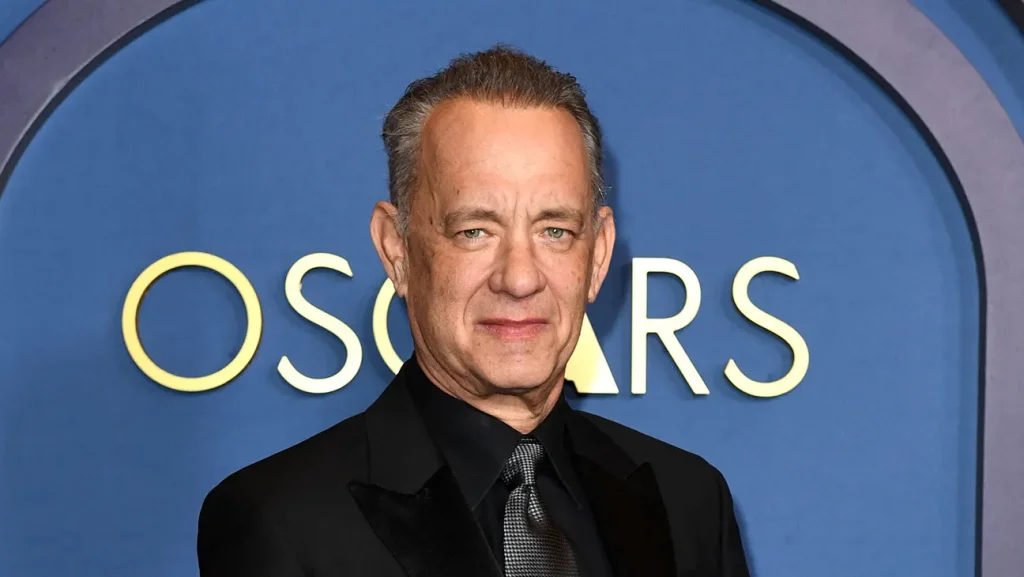
Rank 9 — Tom Hanks ($571.94 Million)
Tom Hanks is the rare actor universally loved across age groups, making his films perpetual staples on every platform. From Forrest Gump, Saving Private Ryan, and Cast Away to the Toy Story franchise, Hanks anchors titles that combine commercial reach with emotional staying power. That matters financially: family-friendly hits and historical dramas both enjoy long afterlives in schools, airlines, streamers, and cable—creating steady, multi-decade residuals.
Behind the camera, Hanks co-founded Playtone, producing series and films that deepen his participation in the economics of storytelling. As with other top earners, ownership and back-end points amplify paydays well beyond upfront salaries. Select endorsements and a respected public image keep his brand premium for museums, charities, and cultural institutions, translating into high-value speaking and partnerships when desired.
Hanks’s edge is trust. Parents trust his movies for kids; adults trust his dramatic choices; brands trust the association. That trust smooths revenue across market cycles and reduces dependency on the latest trend. In 2025, the Hanks portfolio remains powered by evergreen IP, producer economics, and one of the most bankable reputations in entertainment.
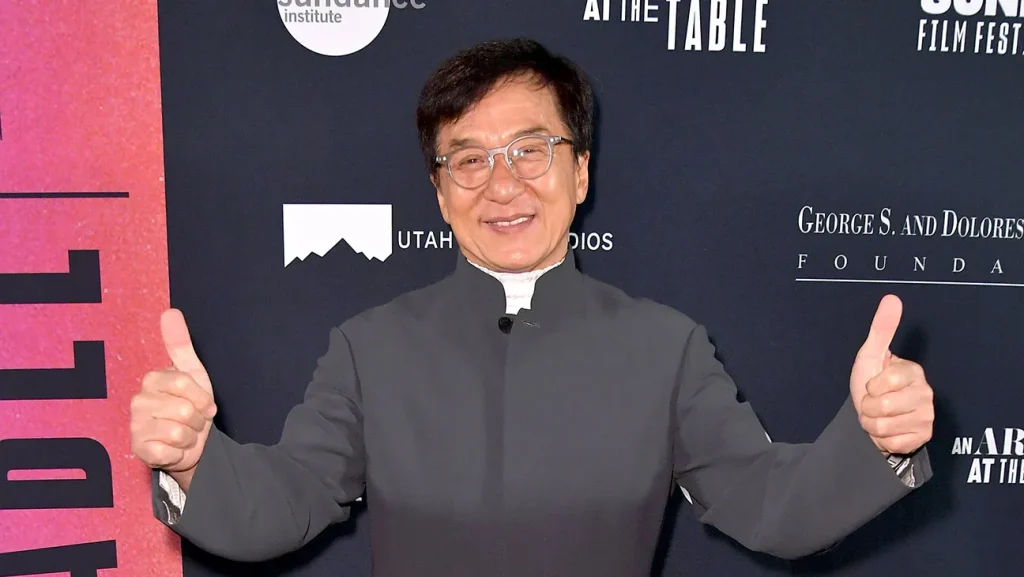
Rank 10 — Jackie Chan ($557.09 Million)
Jackie Chan’s wealth is built on a truly international business: star in China and Hong Kong, crossover in Hollywood, and license across the world. His unique blend of jaw-dropping stunts, comedy timing, and martial-arts choreography made Police Story, Drunken Master, and the Rush Hour series enduring favorites. Crucially, Chan owns a significant share of his brand assets—producing, choreographing, and leading the Jackie Chan Stunt Team—so he captures more value per project than traditional acting deals.
Outside film, he’s long monetized endorsements throughout Asia, tied to categories from consumer goods to autos. Production and distribution activities, music projects, and selective hospitality/entertainment investments broaden the base. Catalog strength matters, too: stunt-driven action ages well because it’s visceral and endlessly rewatchable, feeding broadcast packages and digital compilations that find new fans every year.
Chan’s moat is authenticity. He does the work on camera—an irreplaceable proposition in the VFX era—and that authenticity converts to brand loyalty in crowded markets. In 2025, Jackie Chan remains a case study in how to vertically integrate talent, production, and global licensing into a durable fortune.

